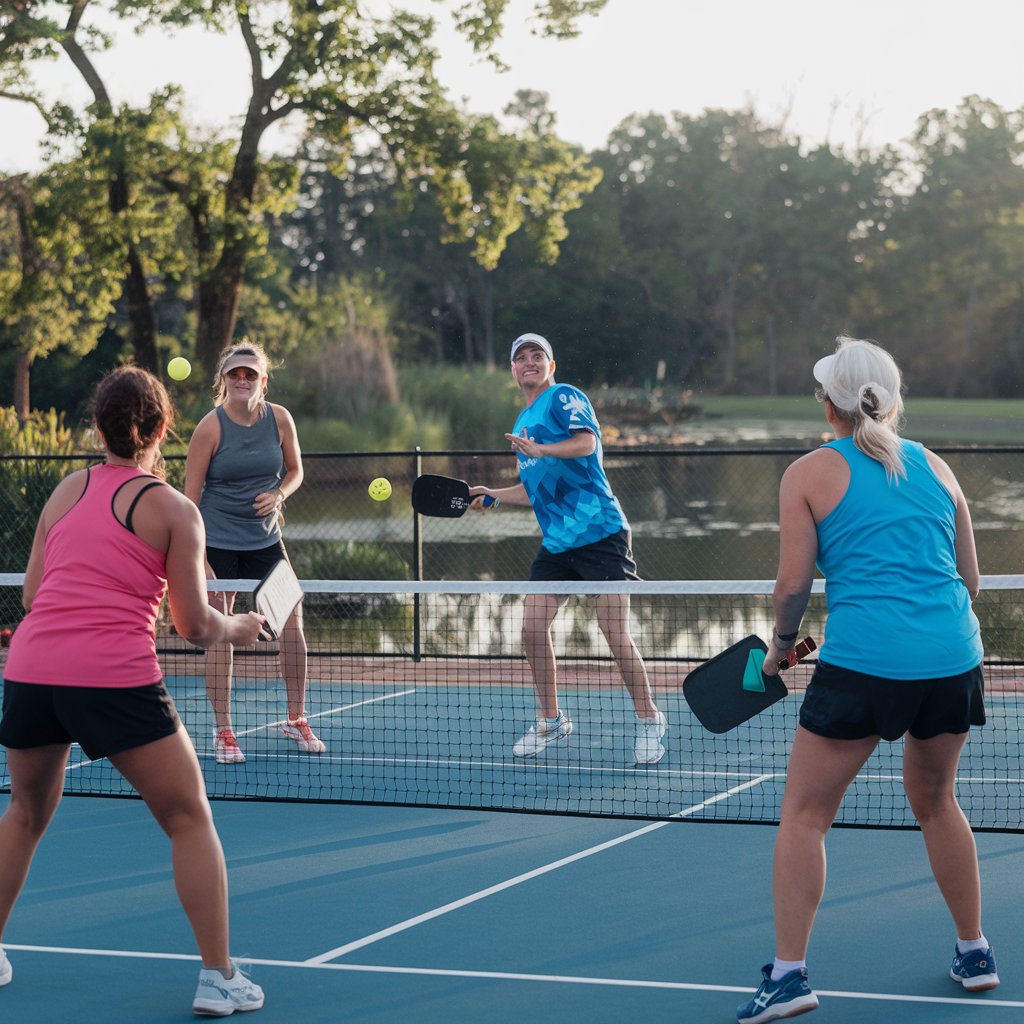Physical Address
304 North Cardinal St.
Dorchester Center, MA 02124
Physical Address
304 North Cardinal St.
Dorchester Center, MA 02124

If you’ve been playing pickleball for a while and are ready to take your game to the next level, you’re in the right place. As an intermediate player, you already know the basics—now it’s about refining your skills and playing smarter. Here are five practical tips that can help you elevate your pickleball game and make you a more formidable player on the court.

One of the most important skills that sets advanced players apart from intermediates is the soft game, particularly the dink. A dink is a soft shot that lands just over the net in your opponent’s non-volley zone (also known as the kitchen). It’s a strategic way to throw your opponent off balance and force them to hit up on the ball, setting you up for a winning shot.
Why It Matters: Dinking isn’t just about finesse; it’s about patience. A strong soft game can wear down your opponents and shift the pace of the match. The key is to stay in control and not get frustrated. Practice dinking cross-court and straight ahead to keep your opponent guessing.
Pro Tip: When you’re dinking, keep the paddle low and stay light on your feet, ready to pounce if they make a mistake.
The third shot drop is another essential technique for intermediate players looking to improve. After the serve and return, the third shot is often a chance to reset the rally by softly dropping the ball into the kitchen. This shot can help neutralize aggressive opponents and give you time to move to the net, where most points are won.
Why It Matters: At the intermediate level, many players rely too much on driving the ball on the third shot. While that can work sometimes, it also opens you up to mistakes or powerful counter-attacks. A well-placed drop shot, on the other hand, puts you in control.
Pro Tip: Practice your third shot drop by focusing on hitting it softly with plenty of arc, landing it right in your opponent’s non-volley zone. The goal is to force them to pop the ball up, setting you up for a strong volley.
Once you understand the value of getting to the net, it’s crucial to optimize your positioning. Many intermediate players make the mistake of hanging back or not communicating effectively with their partner in doubles. The closer you are to the net, the better chance you have of controlling the point with volleys and putting away shots.
Why It Matters: Pickleball is often won and lost at the net. By moving up and staying in sync with your partner, you’ll cut down angles and force your opponents into making errors. Make sure to “move as a team” when playing doubles, keeping an eye on your partner’s positioning to cover the court effectively.
Pro Tip: Keep your paddle up and ready when you’re near the net, so you can react quickly to fast volleys. Don’t hang out in “no man’s land”—get either up to the kitchen line or stay back near the baseline.
While it might seem like the serve is just a way to start the rally, a well-placed or varied serve can be a weapon. Too often, intermediate players fall into the habit of serving the same way every time. Instead, mix it up. Try driving the ball deep to your opponent’s backhand one time, then a soft serve with spin the next.
Why It Matters: Variety keeps your opponent on their toes. By switching up your serves, you can force weaker returns and set yourself up for success on the third shot. Experiment with different depths, angles, and speeds.
Pro Tip: Work on a high, deep serve that pushes your opponent back and a low, fast serve to catch them off guard. The more unpredictable you are, the harder you’ll be to play against.
Pickleball is as much a mental game as it is physical. As you move up in skill level, you’ll face tougher opponents and more intense rallies. One of the best things you can do to improve your game is to stay calm, even when the pressure is on. Don’t rush your shots, and avoid getting frustrated by mistakes—those happen to everyone.
Why It Matters: Keeping your cool allows you to make better decisions and execute your shots more effectively. Emotional players often make rash decisions or get thrown off by a few bad points. Focus on staying steady, even when things aren’t going your way.
Pro Tip: Take deep breaths between points and remind yourself that every rally is a new opportunity. Don’t dwell on missed shots—reset and focus on the next one.
Improving your pickleball game as an intermediate player comes down to mastering a mix of technique, strategy, and mental toughness. Focus on developing a solid soft game, mastering the third shot drop, and positioning yourself wisely at the net. Mix up your serves to keep your opponents guessing, and most importantly, stay calm under pressure. With these tips, you’ll be well on your way to becoming a more competitive and confident player on the court.